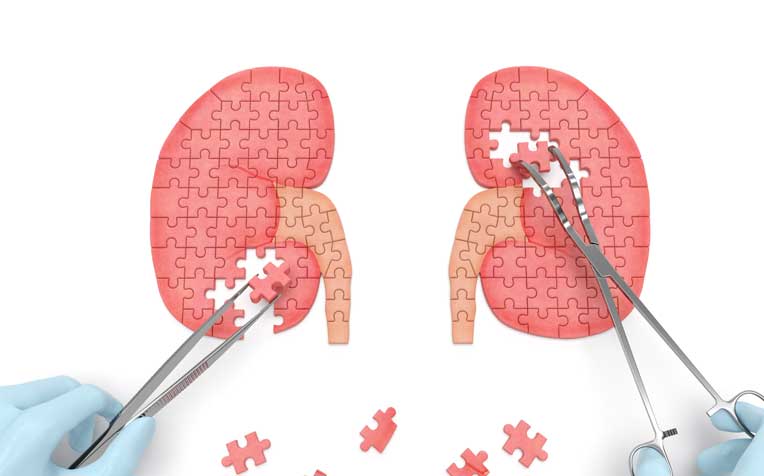HealthXchange will NEVER ask you to transfer money over a call. If in doubt, call the 24/7 ScamShield helpline at 1799, or visit the ScamShield website at www.scamshield.gov.sg.
Kidney Cancer in Singapore: Stats and Treatment

Kidney cancer
Kidney cancer is ninth most common cancer in men here
Kidney cancer affects more men than women, and is the ninth most common cancer in men here. Most patients are between 40 and 70 years old when first diagnosed. The National Cancer Centre Singapore (NCCS) sees about 200 kidney cancer patients annually, roughly half the national total. Among its annual cases, about 50 are at Stage 4; they survive for nearly two years on average, although this may range from six months to six years, said Dr Tan Min Han, Visiting Consultant, Medical Oncology and Cancer Genetics, NCCS. While all cancers happen fairly randomly, Dr Tan cites obesity and a smoking habit as two of the variables linked to kidney cancer. Symptoms include blood in the urine, lower back pain that persists for a week, and in relatively rare cases, a mass that can be felt if the tumour has grown.
Hope of a long term remission
Selected patients with Stage 4 kidney cancer have two choices of treatment: palliative treatment with oral targeted therapy or opt for a treatment called highdose interleukin 2 (IL 2), which carries the possibility of long-term remission.
Dr Ravindran Kanesvaran, Consultant, Division of Medical Oncology, National Cancer Centre Singapore (NCCS), said that unlike patients with most other metastatic solid tumours, patients with Stage 4 kidney cancer can potentially get long-term remission with high-dose IL 2. He puts the chance of this (based on numerous clinical studies), where the patient is still alive 10 years later, at 10 per cent. This may seem like a small figure, but it provides hope for younger metastatic kidney cancer patients.
However, the treatment is aggressive and can be risky (there is a 1 per cent chance of dying from it). To be eligible for the treatment, patients must be relatively young – under 60 years old – and have the clear cell sub-type of kidney cancer, which 75 per cent of kidney cancer patients have, he said.
During therapy, patients stay in a high dependency ward and are monitored closely round the clock. They get the drug intravenously and undergo dramatic physiological changes – their weight might increase due to fluid retention and their blood pressure may drop sharply. At least two cycles of therapy, each lasting five days, are carried out one or two weeks apart.
Since 2012, NCCS has been the only place in South-east Asia, and one of the few centres in Asia, to offer this therapy. Dr Kanesvaran and Dr Toh Chee Keong, Senior Consultant, Division of Medical Oncology, NCCS, were trained overseas on how to deliver IL 2 to patients.
Ref: Q15
Contributed by
Related Articles
Conditions & Treatments
Public Events
Get the Health Buddy App
© 2025 SingHealth Group. All Rights Reserved.

















 Get it on Google Play
Get it on Google Play